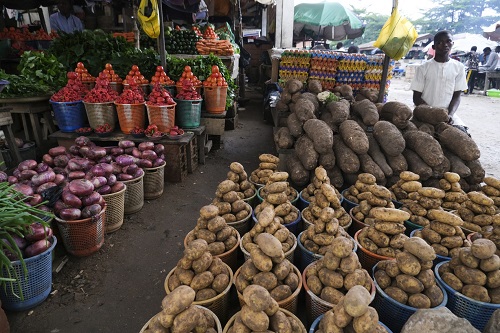As Nigeria races to close gaps in food security and climate change toward meeting the Social Development Goals, (SDGs), by 2030, experts say the restriction of women across the food value chain is a major setback to the attainment of the goals of poverty eradication and prosperity for all.
In a meeting of the High-Level Forum on the SDGs organized by the Nigeria Economic Summit Group, (NESG), in partnership with the Bill and Melinda Gates Foundation yesterday in Abuja, the group observed that a number of factors including gender, high imbalance in trade and foreign debt deficit in agriculture, must be addressed and actions upscaled to realize the SDGs.
Director SDGs Forum and Chief Operations Officer of the NESG, Dr Tayo Aduloju, said a number of factors such as cultural restrictions, patriarchy and societal norms and functions, especially in the rural areas which lock women from certain economic functions in the value chain but once women are educated and economically empowered, these restricting factors begin to diminish.
Aduloju further explained that the meeting which is a nexus of agriculture and food security by the high-level forum on SDGs aims to consolidate evidence on where Nigeria as a nation stands with respect to food security and to proffer accelerated solutions to identified challenges.
According to him, “We have taken three lenses to gender and the first is gender as it reflects itself on the economic roles, gender as it reflects itself to household functions, particularly in the rural areas in the sense that in certain rural areas, the functions of women are defined which lock them into a restricted economic role. The last is societal norms as it affects whether women can be in governance, or have economic control, access or ownership of land and these conversations are driven by the norms depending on where one comes from.”
“This meeting is focused on consolidating the evidence on where we are on food security to be able to proffer accelerated solutions because Nigeria is dealing with a high hunger rate.
“In the COVID year, there were 25 million Nigerians with insufficient daily consumption of food and that has jumped to 59 million from the current data as presented and this shows the scale of hunger rate with debilitating implications of chronic malnutrition, especially in children,” he adds.
He said about 38 percent of children in the country have suffered some form of malnutrition for multiple years now, and this is further impacting Nigeria’s ability to meet the SDGs by 2030 hence urgent unified action is required to this end.
Presenting a draft report, the group pointed out that wide gaps in gender equality in terms of equal rights to economic resources and financial services are skewed unfavourable against women even though women provide up to about half the labour force in the sector.
The report notes that “females in some communities, females are denied markets for high-income crops as males dominate the high-profit markets hence the marketing chain in terms of finance excludes them.”
The group lamented that Nigeria is on the brink of severe hunger as the country currently ranks 103rd among 111 countries on the global hunger index.
Speaking on the member of the NESG commission, Gloria Ekpo said the forum is recommending to stakeholders know specific areas for intervention for maximum impact.
Representative of the Bill and Melinda Gates Foundation, Dr Audu Grema noted that the meeting will set the tone for the NESG upcoming economic summit as it provides deep analyses that will springboard solutions to present challenges.



